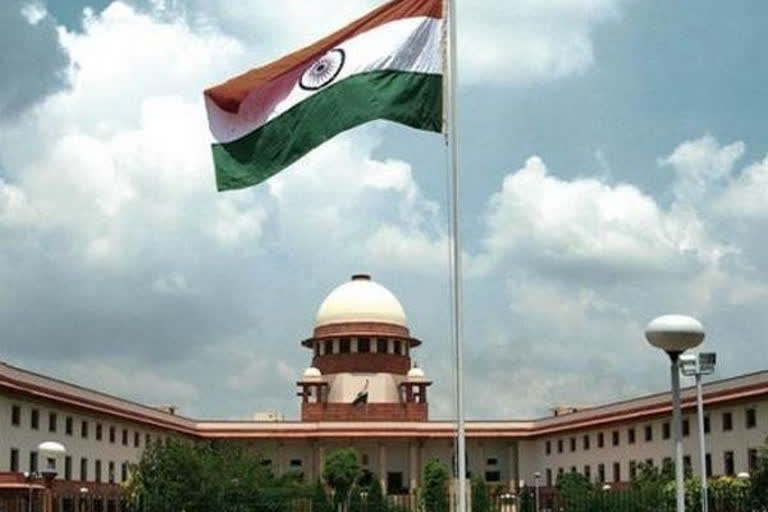New Delhi: The Supreme Court Friday referred to a five-judge Constitution bench the vexatious legal issue concerning the scope of legislative and executive powers of the Centre and NCT Delhi over control of services in the national capital for an authoritative pronouncement.
In a relief to the Centre, which has been seeking the issue of control of services in Delhi to a larger bench, a bench comprising Chief Justice N V Ramana and Justices Surya Kant and Hima Kohli said the limited issue of control over services was not dealt by the Constitution bench which elaborately dealt with'' all the legal questions.
The limited issue that has been referred to this Bench, relates to the scope of legislative and executive powers of the Centre and NCT Delhi with respect to the term services'. The Constitution Bench of this Court, while interpreting Article 239AA(3)(a) of the Constitution, did not find any occasion to specifically interpret the impact of the wordings of the same with respect to Entry 41 in the State List.
We, therefore, deem it appropriate to refer to the above-limited question, for an authoritative pronouncement by a Constitution Bench..., it said. Sub Article 3 (a) of 239AA (which deals with the status and power of Delhi in the constitution, deals with the law-making power of the Delhi Legislative Assembly on the matters enumerated in the State List or the Concurrent List.
We are listing it on Wednesday. Please, do not ask for any adjournment (on May 11), the CJI said. Dealing with the plea of the Centre, the CJI, writing the order for the bench, said, the main bone of contention relates to the interpretation of the phrases: in so far as any such matter is applicable to Union Territories and Subject to the provisions of this Constitution as contained in Article 239AA(3)(a) of the Constitution.
The order directed the apex court registry to place the papers of the present appeal as well as the connected writ petition before the CJI on the administrative side for constituting a Bench of five judges. The bench had reserved its order on April 28 on the Centre's submission that the dispute over the control over services be referred to a five-judge bench, a plea which was strongly opposed by the AAP-led Delhi government.
While reserving the order, the bench had said in the case, that it decides to constitute a five-judge bench to hear the issue then the hearing has to be concluded before May 15 so that the vacation time can be used for preparing the judgement. Senior advocate A M Singhvi had said This court is not here to refer every time the slightest thing is pointed out. How does this matter, if there were three or five judges. It is not about why not, it is about why. The solicitor general had said the matter needed to be sent to a Constitution bench on grounds including that the earlier judgements of the five-judge bench did not give any roadmap to decide as to whether the union or the Delhi government will have the competence to deal with the subject under dispute.
There has been a finding of the bench that there was no consideration on certain aspects by the larger Constitution bench and hence the dispute needed to be referred, Mehta said. The solicitor general had also said the model of governance of the NCT of Delhi would invariably require the Union government to play a central role, even if a legislative assembly or council of ministers is introduced.
The central government had also sought a joint hearing of two separate petitions of the Delhi government on control over services and challenging the constitutional validity of the amended GNCTD Act, 2021 and the Transaction of Business Rules, which allegedly give more powers to the Lieutenant Governor respectively, saying they are prima facie correlated. The plea by the Delhi government arises out of a split verdict of February 14, 2019, in which, a two judge-bench of Justices A K Sikri and Bhushan, both retired since had recommended to the Chief Justice of India that a three-judge bench be set up to finally decide the issue of control of services in the national capital in view of its split verdict.
Justice Bhushan had ruled the Delhi government had no power at all over administrative services. Justice Sikri, however, made a distinction. He said the transfer or posting of officers in top echelons of the bureaucracy (joint director and above) can only be done by the Central government and the view of the lieutenant governor would prevail in case of a difference of opinion on matters relating to other bureaucrats. In the 2018 judgement, a five-judge Constitution bench had unanimously held that the Lieutenant Governor of Delhi is bound by the aid and advice of the elected government, and both needed to work harmoniously with each other.
PTI



